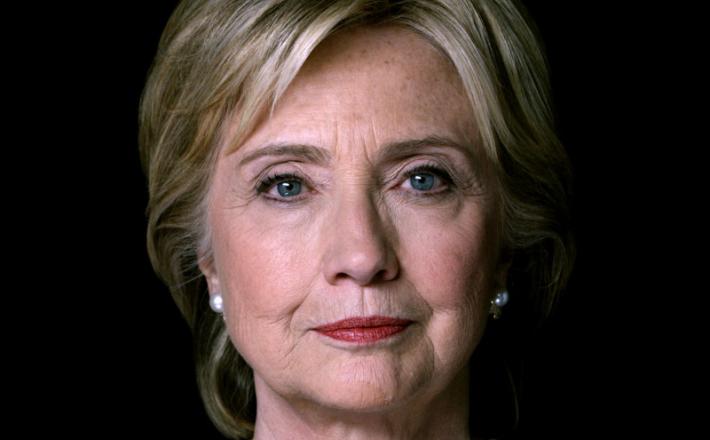Historic gains for women in politics worldwide
So far, 2016 proved eventful for women’s political participation and leadership in politics. In Rome, 37-year-old lawyer Virginia Raggia promised a new era for the city as she celebrated her victory in June over centre-left Democratic Party candidate Roberto Giachetti with 67% of the votes, becoming not only Rome's first female Mayor but also the youngest.
After weeks of uncertainty in British politics following the EU referendum, Theresa May, 59, a Conservative politician, has become Britain's Prime Minister. May is the second woman in the job, following in the steps of fellow Conservative Margaret Thatcher. She joined Germany’s Chancellor Angela Merkel, Norway’s Prime Minister Erna Solberg, Croatia’s President Kolinda Grabar-Kitarović, Lithuania’s President Dalia Grybauskaitė and Malta’s President Marie-Louise Coleiro Preca as Europe’s group of women leaders. With Theresa May becoming Britain’s Prime Minister, global attention turns to women running in two other elections, which reach major milestones later this year, the United Nations and the United States.
[[{"fid":"11188","view_mode":"default","fields":{"format":"default","field_file_image_alt_text[und][0][value]":"","field_file_image_title_text[und][0][value]":""},"type":"media","link_text":null,"attributes":{"style":"display: block; margin-left: auto; margin-right: auto;","class":"media-element file-default"}}]]
On 21 July, the United Nations Security Council formally started considering candidates for the position of Secretary General, and six women are among the twelve declared candidates: Helen Clark, New Zealand’s former Prime Minister and the United Nation’s Development Programme Administrator; Christina Figueres, the Executive Secretary of the UN Framework Convention on Climate Change (UNFCCC); Susana Malcorra, Argentina’s Minister of Foreign Relations; Director-General of UNESCO and Bulgarian politician Irina Bokova; former Croatian Foreign Minister Vesna Pusic; and former Moldovan Foreign Minister Natalia Gherman. If any of the six are chosen to succeed current Secretary-General Ban Ki-moon, she will be the first woman to ever hold the position. A campaign to elect a woman is trending on social media and UN circles.
[[{"fid":"11187","view_mode":"default","fields":{"format":"default","field_file_image_alt_text[und][0][value]":"","field_file_image_title_text[und][0][value]":""},"type":"media","link_text":null,"attributes":{"style":"display: block; margin-left: auto; margin-right: auto;","class":"media-element file-default"}}]]
Most recently, for the first time in American history, a major party nominated Hillary Clinton as the Democratic Party’s first female nominee to run for President on the United States. If elected in November, Hillary Clinton would be the first woman President of the United States. Several authors and commentators highlighted the role of social media in her campaign strategy as it is said to use top-notch social media presence, enabling her to connect particularly with younger generations.
Useful Links:
Hillary Clinton becomes the Democratic Party’s presidential nominee
Theresa May becomes Britain's second female Prime Minister
Virginia Raggi becomes first female mayor of Rome
After 71 years, the U.N. finally may choose a woman as secretary-general
Campaign to elect a woman Secretary General
NATO appoints first woman as deputy head
Quota system to empower women in the Arab world
More female MPs wanted in Malawi's Parliament
Women’s presence in politics still limited in South Korea
Linda Burney becomes the first female Indigenous MP in Australia's history
Tunisia moves closer to achieving gender equality in politics
Moldova takes historic step to promote gender equality in politics
Enhancing Women’s Role and Participation in Governance in India
The Namibian Parliament promotes gender equality

So far, 2016 proved eventful for women’s political participation and leadership in politics. In Rome, 37-year-old lawyer Virginia Raggia promised a new era for the city as she celebrated her victory in June over centre-left Democratic Party candidate Roberto Giachetti with 67% of the votes, becoming not only Rome's first female Mayor but also the youngest.
After weeks of uncertainty in British politics following the EU referendum, Theresa May, 59, a Conservative politician, has become Britain's Prime Minister. May is the second woman in the job, following in the steps of fellow Conservative Margaret Thatcher. She joined Germany’s Chancellor Angela Merkel, Norway’s Prime Minister Erna Solberg, Croatia’s President Kolinda Grabar-Kitarović, Lithuania’s President Dalia Grybauskaitė and Malta’s President Marie-Louise Coleiro Preca as Europe’s group of women leaders. With Theresa May becoming Britain’s Prime Minister, global attention turns to women running in two other elections, which reach major milestones later this year, the United Nations and the United States.
[[{"fid":"11188","view_mode":"default","fields":{"format":"default","field_file_image_alt_text[und][0][value]":"","field_file_image_title_text[und][0][value]":""},"type":"media","link_text":null,"attributes":{"style":"display: block; margin-left: auto; margin-right: auto;","class":"media-element file-default"}}]]
On 21 July, the United Nations Security Council formally started considering candidates for the position of Secretary General, and six women are among the twelve declared candidates: Helen Clark, New Zealand’s former Prime Minister and the United Nation’s Development Programme Administrator; Christina Figueres, the Executive Secretary of the UN Framework Convention on Climate Change (UNFCCC); Susana Malcorra, Argentina’s Minister of Foreign Relations; Director-General of UNESCO and Bulgarian politician Irina Bokova; former Croatian Foreign Minister Vesna Pusic; and former Moldovan Foreign Minister Natalia Gherman. If any of the six are chosen to succeed current Secretary-General Ban Ki-moon, she will be the first woman to ever hold the position. A campaign to elect a woman is trending on social media and UN circles.
[[{"fid":"11187","view_mode":"default","fields":{"format":"default","field_file_image_alt_text[und][0][value]":"","field_file_image_title_text[und][0][value]":""},"type":"media","link_text":null,"attributes":{"style":"display: block; margin-left: auto; margin-right: auto;","class":"media-element file-default"}}]]
Most recently, for the first time in American history, a major party nominated Hillary Clinton as the Democratic Party’s first female nominee to run for President on the United States. If elected in November, Hillary Clinton would be the first woman President of the United States. Several authors and commentators highlighted the role of social media in her campaign strategy as it is said to use top-notch social media presence, enabling her to connect particularly with younger generations.
Useful Links:
Hillary Clinton becomes the Democratic Party’s presidential nominee
Theresa May becomes Britain's second female Prime Minister
Virginia Raggi becomes first female mayor of Rome
After 71 years, the U.N. finally may choose a woman as secretary-general
Campaign to elect a woman Secretary General
NATO appoints first woman as deputy head
Quota system to empower women in the Arab world
More female MPs wanted in Malawi's Parliament
Women’s presence in politics still limited in South Korea
Linda Burney becomes the first female Indigenous MP in Australia's history
Tunisia moves closer to achieving gender equality in politics
Moldova takes historic step to promote gender equality in politics
Enhancing Women’s Role and Participation in Governance in India
The Namibian Parliament promotes gender equality